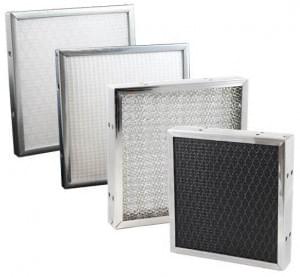
A particulate air filter is basically a device made of porous, or fibrous materials that removes airborne particles like dust, pollen, mold, bacteria, and even odors. Such filters may also remove gaseous pollens and volatile organic compounds (VOCs) like ozone or chloroform. Particles removed include: dust, spores, smoke, dirt, dust mites, pet dander, pollen, botulism, hepatitis, shingles, and other irritants. There are different types of particulate filters available for specific applications.
A HEPA (high efficiency particulate air filter) is one of the most common air filter systems used today. The filter is situated at the front of the air filter and filters the particles that can cause asthma or allergies. The filter uses a paper-based collection container that collects the dust, microorganisms, and other debris. When activated, the HEPA traps the particles in its collector plate and then releases the air at a constant flow rate. Most of these units require a vacuum system that allows them to be placed in the honeywell air filter.
If you drive a very old car or truck, chances are your air filters need to be replaced more often. Old cars and trucks have dust and dirt collect in the engine, and when worn out, they become very dirty and clogged. As well, dirt and dust are sucked into the tubes and by-pass of the air filters through the exhaust system. Because of this, your vehicle's engine needs to be cleaned and serviced regularly. To know more about furnace, visit this website at https://www.youtube.com/watch?v=sVXeFvkCqik.
The type of furnace filter you choose depends on the type of engine you drive and the maintenance and fuel economy you want. There are five main types of air filters: non-metallic, metallic, soft, premium grade, and combination. Your vehicle's specific model should indicate the type it uses in the owner's manual. However, the type of air filter you use depends mainly on your vehicle's fuel economy.
In an economy class vehicle, a premium grade air filter will ensure cleaner air because it has more filter media to trap dirt and dust. Premium grade air filters usually have a larger filter volume and a higher air flow capacity, which allow it to trap more dust and dirt particles. This means cleaner air is distributed throughout your vehicle. In an economy or compact car class vehicle, a non-metallic filter would be recommended as its lower air filter media volume allows more room for dirt to be trapped, which leads to dirty air being distributed throughout your car.
Regular maintenance and clean up of your vehicle's air filter helps prevent buildup of dirt and debris in your engines. Dirty air filters also decrease the performance and life of your engine. Dust, debris, and unwanted particles are among the most damaging agents for your engine, and dirty air filters allow them to enter your engine. They also decrease the longevity of your engines by reducing the lubrication your engine receives. The result is decreased engine performance and can even lead to costly engine repair.